At present, Ukraine is experiencing difficult times of its development related to the armed conflict in the Donbass. In this situation, employees of the healthcare system of the front zone are forced to work in very difficult conditions.
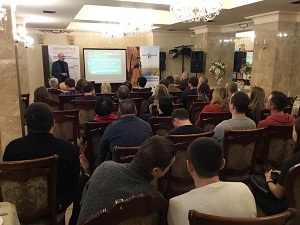
Thus, in the fifth report of the Safeguarding Health in Conflict Coalition (2019), it is noted that in 2017, there were about 700 attacks in the 23 countries on hospitals, healthcare workers, patients and ambulances. As a result of these attacks more than 100 doctors and 290 patients died.
According to WHO data in Ukraine, since the beginning of the conflict, 160 medical facilities were shelled on the frontline, 130 of them remain partially or totally disabled. More than 400 healthcare facilities report insufficient supply of medicines. Access to medical care, medicines and humanitarian aid for more than 4 million people affected by the conflict, seriously complicated by shelling along the collision course.
Under such conditions, the Department of Anesthesiology and Intensive Care of NMAPE named after PL Shupyk decided to hold an educational course of lectures for doctors in the frontline zone.
In the middle of the second decade of February 2019, the staff of the Department of Anesthesiology, at the invitation of the Association of Anesthesiologists of Donetsk and Luhansk Oblasts, visited the cities of the frontline zone Mariupol, Bakhmut, Severodonetsk and others, where they conducted simulation sessions and lectures on selected problems of anesthesiology and intensive care.
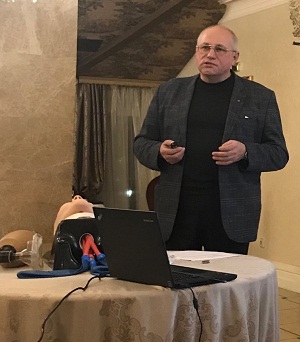
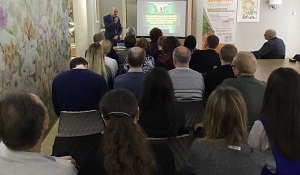
During the 3 days of stay in Donbass, the staff of the department traveled 730 km.
The greatest interest was caused by the simulation lecture by professor Oleh Loskutov, devoted to the practical aspects of solving the problems of pressor reactions during anesthesia and Yuriy Markov ("Comorbid (polymorbide) conditions associated with the use of alcoholic beverages containing ethyl alcohol").
During and after the exercises there was a lively discussion, practical doctors asked the head of the department of anesthesiology and intensive care, Professor Oleh Loskutov and associate professor Yuriy Markov.
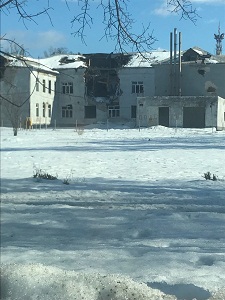
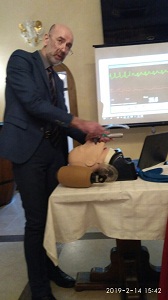
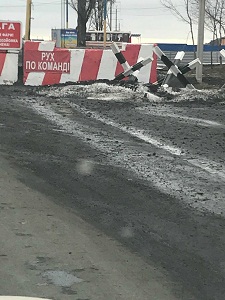
After all professors Oleksiy Nesterenko (head specialist in anesthesiology and intensive care) and Henadiy Posternak (Head of the Department of Anesthesiology, Resuscitation and Emergency Care at the Luhansk State Medical University) thanked for interesting content reports, noting that in recent years this is the first visit of capital`s specialists of this level to doctors working in the difficult operating conditions of the front zone. It was hoped that such visits and communication would become traditional in the future.